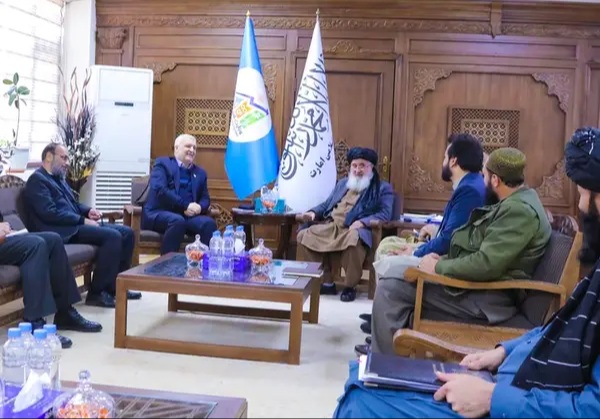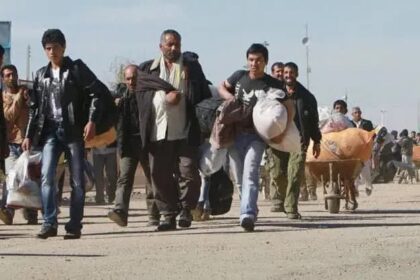RASC News Agency: Reports suggest that Din Muhammad Hanif, the Taliban’s Minister of Economy, engaged in discussions with Iranian diplomats in Kabul to explore avenues for enhancing economic cooperation, expanding exports, and advancing transit developments between Iran and Afghanistan. As disclosed in a press release from the Taliban’s Ministry of Economy on Wednesday, December 13th, notable attendees at the meeting included Kazemi Qomi, the Ambassador of the Islamic Republic of Iran, Hasan Mortazwi, the Deputy Ambassador, Economic Advisor, and former Commercial Attache, along with the Economic Advisor to the Special Representative of the President of Iran.
This meeting transpires against the backdrop of Mullah Baradar, the Deputy Minister of Economy for the Taliban, leading a delegation to Iran last month. Analysts speculate that this strategic move, arising from strained relations with Pakistan, aims to seek alternatives for imports. It is crucial to underscore that the announcement of this diplomatic dialogue coincides with pervasive reports highlighting the worsening economic situation in Afghanistan under the Taliban’s governance, contributing to unprecedented levels of poverty among families.
Concurrently, it is imperative to note that amid this challenging economic scenario, the Food and Agriculture Organization (FAO) previously reported that one million of Afghanistan’s population grapple with food insecurity. The report accentuated that the demand for aid in 2023 is further intensified by armed conflicts, economic crises, climate changes, poverty, and inequality—challenges Afghanistan confronts under the rule of this group.






